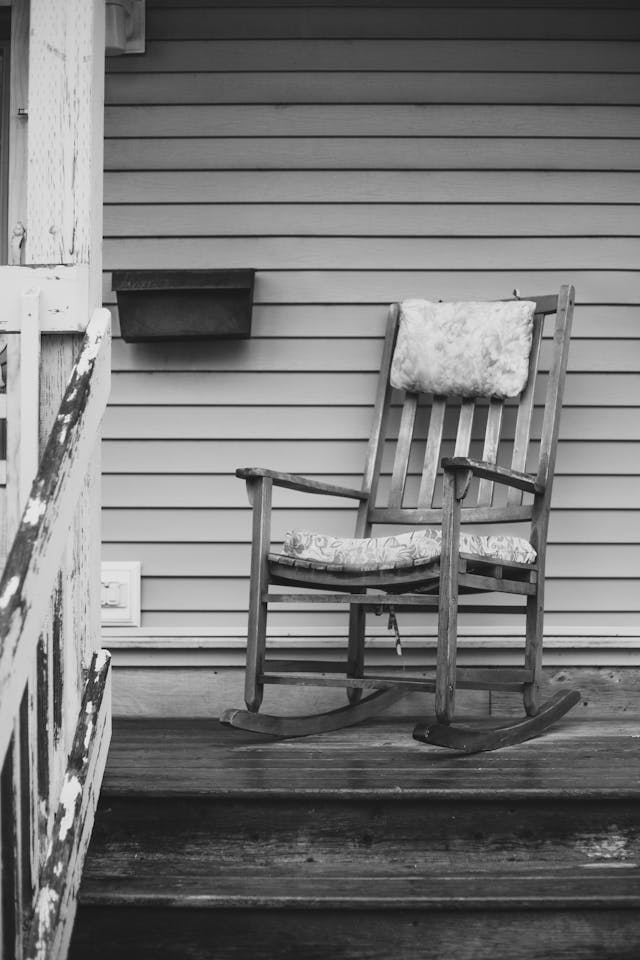Smithology Fiction: He mostly just remembered the wait
The planes hadn’t flown that morning. They flew every morning, but that day, the sky was empty and quiet. Gone were the ever-present cargo jets; gone even were the light Cessnas that sometimes droned into the air to shoot approaches all day, their pilots traveling nowhere but privileged enough to pay for the time outdoors.
They had grounded the planes because they knew, he guessed. Reverence, or at least a feint in that direction. The day still meant something to a few—perhaps not too many, any more, but enough that it still happened, still managed to clear the Senate’s steep annual voting margin and acquire the proper permits. He was old enough that these events would probably keep happening as long as he remained alive, as long as he kept getting out of bed and shuffling purposely out to the porch to watch, and then one day he wouldn’t be able to leave the bed, wouldn’t be able to make his mug of weak tea or use his rationed fresh-air time in such a manner, and none of it would matter any more, at least to him.
That was going to be a strange day, he thought. Maybe he would be so lucky as to spend it unconscious. Then he leaned back in his chair and picked at the varnish on an armrest. A flake came off under his fingernail, fluttering to the ground. He stared at it idly, then went back to watching the trees.

Who knew why the vote kept passing? Maybe it was tied to some other piece of social brickwork. The annual jet-fuel shortages that were said to be planned years in advance, or the monthly servnet curfews that had begun a while back, to keep the bandwidth free for… something. No one seemed to know, and he long ago learned to stop asking. Either way, the air was clear that day, and in the middle of summer, to boot. It was nice to see it from the other side of the window.
An hour ticked by. They never announced the schedule. You had to gamble your rationed hours against arrival times from years past, then throw in a bit of guesswork and cross fingers. Too late and you’d miss it, of course, but too early was just as bad. When your outdoor allotment ran down, that little geiger light at the front door would change from green to orange, and then the autolocks would silently begin counting down, the traditional three-minute grace period, and you’d walk back inside.
When he was younger, so much younger, the son of a neighbor friend had ignored the light. There had been a rainbow or something in the sky—one of those atmospheric patterns where weather and sun meet, on the rare days without haze—and the boy hadn’t wanted to come in. Let me stay, he told his parents, in the arrogance of youth: just to watch, I can find a way past the door, I’ll be fine. The father had urged, but the young man was big enough to fight him over something like this, and he was also determined, and so the parents eventually caved, powerless.
The locks cycled and night fell, and then the boy began banging on the door. His parents, heartbroken, wanted to look but knew enough not to. The next morning, after all noise from the porch had ceased, the takeaway truck rolled into the driveway. Hazsuited men climbed out and carried his lifeless, corroded form away, and the parents were not allowed to visit his body before the incinerator, could not get clearance.
So no, you did not want to get stuck outside.
He did not witness this first-hand; the discussions after painted enough of a picture. The telephone calls about it came regularly, until the novelty wore off and everyone went back to watching TV. Similar calls had provided similar discussions whenever a new law was announced. The patterns were always the same: Certain pastimes would never be made illegal, but the necessary safety equipment and permits were always shepherded until fewer and fewer were issued, access more and more expensive. After a while, only the wealthy could afford sufficient protection for the exposure time, and no one wanted to die for a game of tennis or a walk in the park, so they simply stopped going.

There were reasons for all this, of course. Laws in a democracy are not made without reasons. Nor did the wikis lie about these things, he suspected; that would not have made gains for their authors. Some of the reasons even seemed smart, at least in context. How a group of people or a well-meaning government might enact sensible change over time. But those rules had eventually stacked into a morass, and the balance so often smelled wrong. As if the chi of things had not been… properly addressed.
Funny phrase, he thought: the chi of things. He’d often said that to his wife before she died, as a sort of shrug at the inexplicable. The feeling when the oven mysteriously refused to connect to the network and cook, or when the weather would suddenly and almost impossibly shift from the patterns of the last few days. Never predictable, probably always related to events on the coasts. Servnet never told you, but as with the wikis, you could tell.
He had missed only a few of the drive-bys in his life. The year his wife passed, he had been allowed to accompany the procession out of the hospital, to follow the gurney the hundred yards to the burn building, and it was worth the tradeoff then, to watch her leave. The memory stuck to his ribs. Same for the day in secondary education when Arlo Carter had locked him into the supply closet as a prank. The class had emptied onto the playground and watched the road—teachers were somehow more tied-in, had a better sense of government time—and then it came ripping by, and the children screamed loud enough to be heard from inside the closet.

The noise of the machine itself was similar from year to year, if never quite the same. Long ago, the first run was supposedly done by an old exotic—no one knew quite what, but it was definitely Italian, or maybe just red. His mother had told him that those first few cars were red, when she was a little girl, and he trusted her. In later days, as rationing set in and pigment grew rare, even for government projects, the colors were more dull, flat browns and mottled blacks, generic shapes under brushed-on paint. The Miata that had come by last year—it was definitely a Miata, for the top went down, and he knew of no other two-door top-downer—that was the color of dark mud.
A crackle echoed in the distance. He looked up. Perhaps it was the machine? On the road in front of the house, leaves of grass poked from cracks in the pavement. He could be hearing things, he thought.
Then: answer. The crackle drew closer, became a boom, rose and fell as if straining and relieved. Then it was in front of his face. Slower than he would have expected, granted, but still moving, faster than a man could run. Less speed than last year, but the same hardware: no roof, two doors, panels dull as dirt. The right front wheel was a different color than he remembered—no longer silver, now something between dark blue and purple, and a different shape.
The street ended a few houses down, a T-intersection half-closed by a deteriorating construction barricade. The machine bent into the corner uneasily, in a series of jerks, changing direction as if willing but pained by the act.
Perhaps someone had crashed it, the man thought? Was the pilot unhappy? Maybe they could no longer find anyone who knew how to work the controls. Perhaps the tires were coming apart. Did it matter? He was still seeing it. His chest filled with air, as if lighter and more buoyant.
The same feeling he had felt every year, for so long. Then it was gone, the moment over.
As if on cue, the light near the door changed, green to yellow. He stood and walked back inside, where he sat back down. Lacking ideas as to what to do next, he did what he always did in these moments, and he waited. Near the window, this time, for the daylight, watching the trees through the composite-lead pane. The clock in his mind reset, and there was, once again, twelve months to go.
He picked at the varnish on the chair. A different chair from the one outside on the porch, or maybe it was the same. He couldn’t remember bringing it indoors, and maybe he had forgotten, hurried by the changing of the light. He remembered so little of late. He mostly just remembered the wait.


